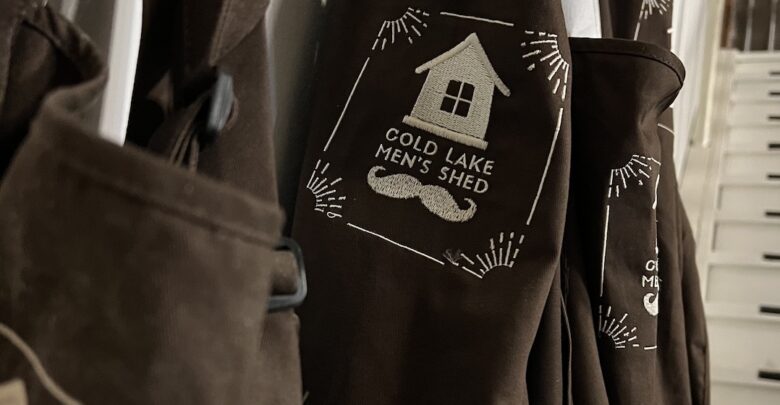 Supplie
SupplieFor retired, rural men, Men’s Sheds can provide a sense of purpose, inclusion, and camaraderie that benefits their mental and physical health. This is according to a report from the Alberta Centre for Sustainable Rural Communities, located at the University of Alberta’s Augustana Campus.
Men’s Sheds are communal spaces for men to socialize and work on projects such as woodworking, metalworking, and cooking. Many of these projects they donate to the community.
Through interviews with 12 men from Camrose and Cold Lake, the researchers evaluated the effectiveness of Men’s Sheds. Kyle Whitfield is an associate professor in the faculty of science’s school of urban and regional planning and an author on the report.
At the time of the study, Serena Isley was an undergraduate bachelor of science student at Augustana. Currently, she is a second-year Master’s of Science and Medicine student at the U of A and another author on the report.
“Those men were struggling with coming to terms with what this new phase of life looked like for them,” Isley says
Two big challenges the rural and retired men face is loneliness and isolation, Whitfield and Isley agreed. As well, retirement meant losing friends and the sense of purpose that came with working, Isley said.
“I think a lot of the men were struggling with some feelings of sadness,” Isley said. “Feeling like they’ve lost a part of themselves because in a sense, they really have. [Work] was a part of their identity at one point in time.”
“It was really clear that those men were struggling with … what this new phase of life looked like for them.”
For the men, Men’s Sheds helped alleviate their transition into retirement, Isley said. According to the report, all 12 men said the Men’s Sheds had improved their mental health. As well, they said they would recommend joining a Men’s Shed to their friends or family.
While conducting interviews, Whitfield was surprised at the degree of loneliness the men described, she said.
“Some of those men shared very personal, deep-hearted stories with us about their experiences of loneliness. So that was a huge eye-opener for me,” Whitfield said.
Additionally, Isley said she was surprised at the men’s vulnerability during their interviews.
“It was surprising, but it was also really heart-warming. It was really nice to be able to understand more about their experiences.”
“There’s no other supports there that are just for men,” Whitfield says
Several participants said it was important for the Men’s Sheds to be a club for men. In the report, the men were only identified by their first names. One man named Warren mentioned that there are some problems men may not want to talk about with their wives or other women. He said the sheds gives them a place to talk about those issues.
Another man named Walter said Men’s Sheds are a “place to be shoulder-to-shoulder and just be able to relate with each other.”
“I think these men felt more comfortable with the Men’s Sheds because it was for other men. There’s no other supports there that are just for men,” Whitfield said.
Whitfield noted that several Women’s Sheds have started up in the United Kingdom. The She Shed Association in the UK intends to give older women a sense of community.
Report meant to raise awareness about Men’s Sheds, Isley and Whitfield say
Releasing the report was a way for the researchers to raise awareness for Men’s Sheds, Isley and Whitfield said.
“The purpose of pushing out these public reports was just to spread the word on Men’s Sheds and how they could provide those avenues of support,” Isley said.
Isley thinks Men’s Sheds are particularly important in rural areas. She mentioned that rural areas have fewer amounts of mental health support. As well, she said rural citizens may be reluctant to access available support.
“Without those men having to access formal services, they’re able to feel that they’re holistically supported in a sense,” Isley said.



